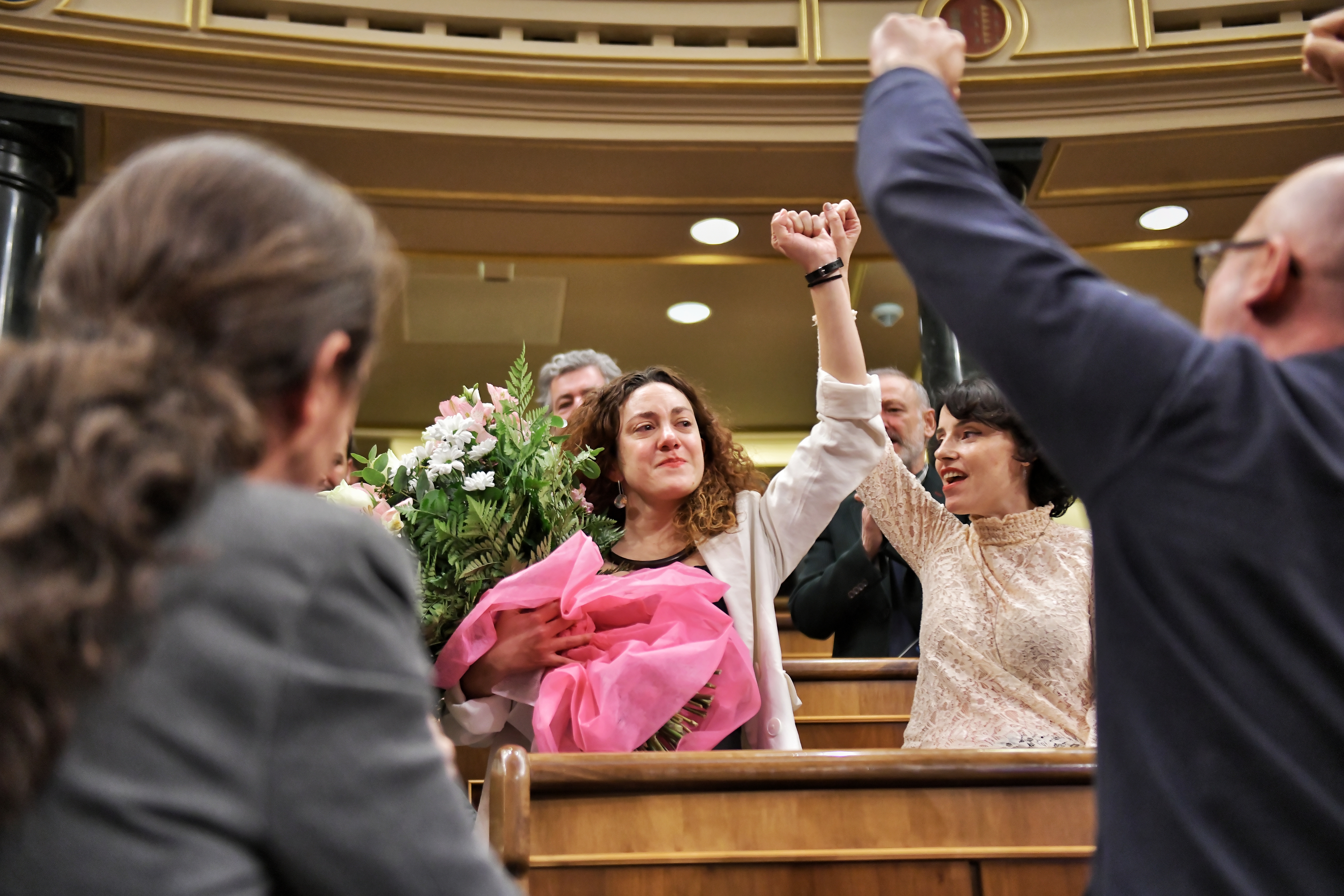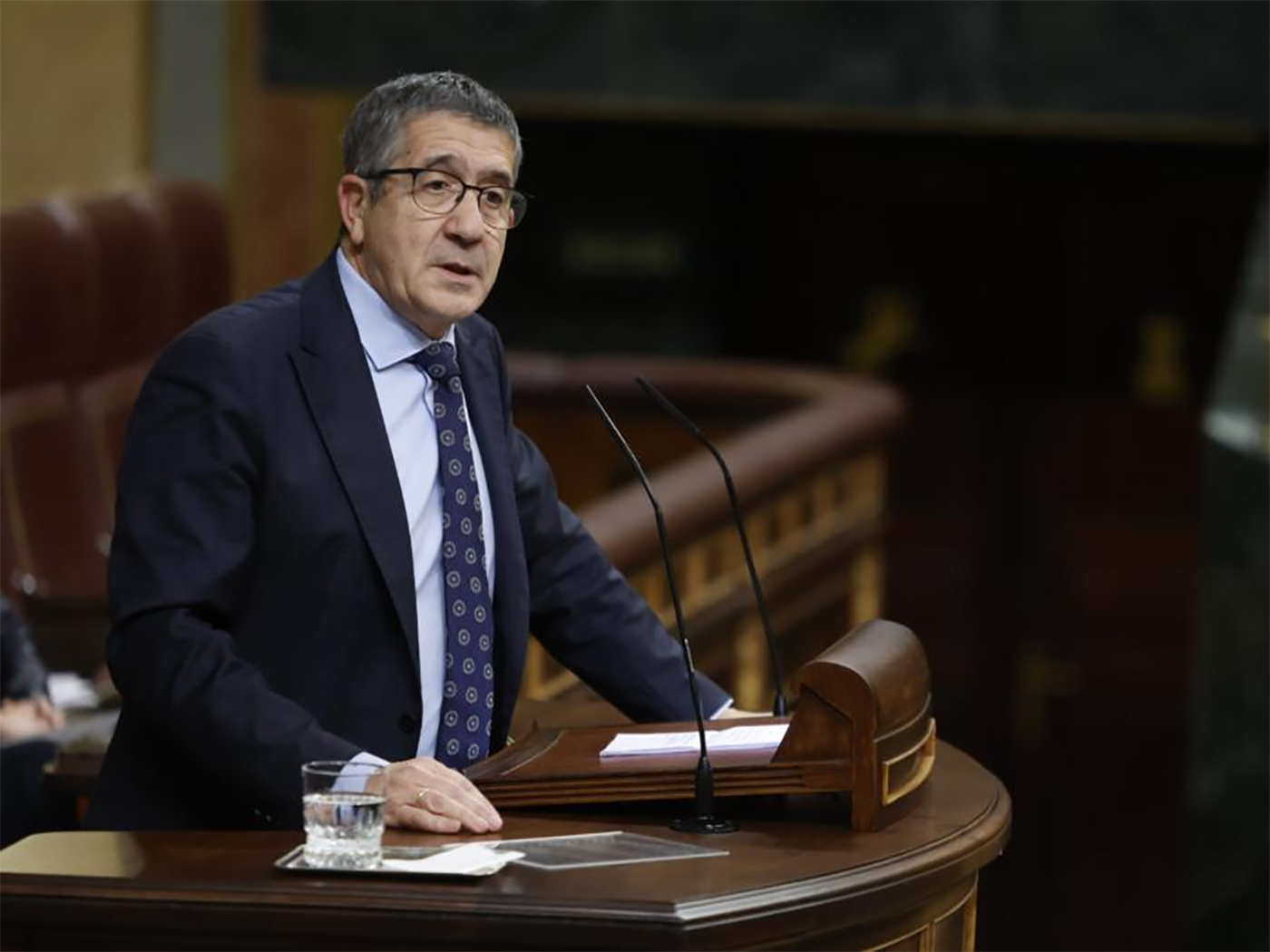“Congress is a clear example of the silence we have suffered from women”
- Aina Vidal is a member of the Spanish Congress by En Comú Podem (Barcelona, Catalan Countries, 1985). He made the jump to Madrid in 2015 with a significant track record in trade unionism, being a member of Xavier Domeneche’s list. His experience in protecting workers’ rights led him to be the spokesman for the United States parliamentary group Podemos in the Toledo Pact.

On the day of Pedro Sánchez's investiture, he reported that he had cancer. How did he live that day?
It was crazy. I remember the flashes. I was trying to imagine strength and happiness, as I was trying to indirectly remember all faces, because I thought I wouldn't come back. I would open up a lot of people saying everything was going to be OK. And that surprised me, because nobody knew what I had. Well, I think it didn't deserve that much protection, but I also think that that day my vote was important for a lot of people. Because, of course, they were worried about my health, but also because our yes were in favour of a left-wing government that would put our life at the center.
How are you now?
Much better. Thanks to the excellent team of doctors we managed to reach the intervention and it was a success. Until then I thought that health was white or black, that it should be sick or healthy. Then I've known, like everything else, that life is also in gray. They have made the disease chronic, at first it was a hard blow, because I wanted to cure it. But with today's knowledge, we can get here, and I can't complain. I feel good. I don't have the same concentration capacity as before, I get tired and the recovery time is much longer. What happens to others over the age of 30, they're tough, but not long enough to stop being.
Pandemic has shown the value of public health that you have called for so many times, right?
Totally. Because the private has no vocation or capacity. Public health is one of the great treasures of society and, unfortunately, we do not see its value until we are overcome. That is why I hope that the memory of the pandemic will never be erased and that no government will be tempted to reduce public health resources. On the contrary, I hope more: that any government will increase the professionals and the resources that are lacking. It requires a lot of investment in health, science and research.

The saturation of public health is partly due to the 2008 cuts. Now that United Nations We Can Govern, what do you think of the management that has been done? In
recent general budgets, public health investment has increased by 75% and research investment by 60%. The austerization that we have experienced in the last decade has been left behind, guiding investment to the public. But that's not enough. A step forward must be taken in promoting more public and comprehensive health: mental health, the dentist and rehabilitation are guaranteed and have public access.
You went back to Congress on the day of the failure of the VOX motion of censure. “In our fears we send us,” he said.
I've had a lot of fear this last year. I've been frightened by pain, death and not seeing the people I love again. And it's important to learn to live with fear. We live it as a bad feeling, and it's not. Fear allows you to be alert, to be aware of the risks. Psychology has helped me along this path. And in our fears, I've seen that we send. The extreme right decided to move the finger into the wound of the people, one of the most difficult moments that the society that used it in its favor has experienced.
Her intervention was particularly acclaimed because she first denounced obstetric violence in the hemiciclo.La obstetric violence
was an obvious secret and has been accentuated in the pandemic. I have seen many friends spend much worse than they would suffer and it would be acceptable to varying degrees. They've only gone through the whole process, with less information, and they've broken all their desires. Why is childbirth a trauma for so many people? Many women suffer terrible torture. It's terrible.
How is it possible that obstetric violence has never been fought in the Spanish Congress?
I cannot understand that. Surely because they are “women’s issues”. It's the story that patriarchy needs to silence us. The issue of childbirth is courageous and disconstructs what we have learned throughout life: that childbirth is a matter for doctors. Congress is a clear example of the silence we have suffered from women. I think we need to talk more.
Data on obstetric violence are disturbing. What do you think should be the role of the leftist parties and, in particular, of the Spanish Government in this matter? The United
Nations itself has pointed out that obstetric violence occurs and that it must be eradicated. Violence is invisible, silent and socially unacceptable, hidden behind hospital protocols. The recognition of international agents was essential to value women's experiences and promote healthier practices. It is difficult for professionals to talk about obstetric violence because it involves recognizing the existence of systemic and structural violence against women. This is hard, but if it is difficult or not a reality, so it is essential to apply quality controls in health centers.
year I have experienced a double confinement: the advanced cancer and the pandemic at the same time. And what else? When I needed my people to be closer than I've ever been impossible. I had the time against me, and I was scared not to see those who appreciated me again. On the other hand, the pandemic has helped me to relativize the situation: not only me, people have gone wrong, many families have not been able to say hello, there have been many deaths… In part I have felt accompanied by fear and pain”.
I was watching the autonomic bulletin (I wrote it, and I immediately repented of the purrustling, of the excellent journalist who works in the informative, but I got angry again and I had my regret): they were talking about the PNV. Against and for the Spanish Congress. However,... [+]

























